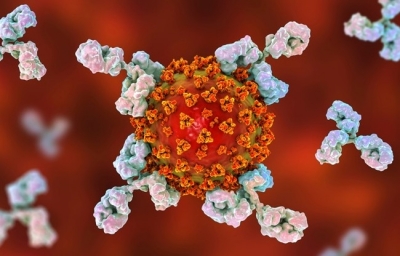
Antibodies that specifically react with self-antigens are called autoantibodies. These antibodies are generated as a result of the loss of tolerance response against self-antigens and can be pathogenic.
Autoantibodies are generated as a result of disrupted central and peripheral tolerance systems, which eventually lead to maturation and differentiation of autoantibody-generating B lymphocytes into autoantibody-releasing plasma cells.
B lymphocytes that produce high-affinity autoantibodies to self-antigen are either eliminated or functionally inactivated, whereas B lymphocytes that produce low-affinity autoantibodies escape the selection process and continue the maturation process.
Natural autoantibodies are primarily generated from (CD5+) B-1 lymphocytes, which are the most abundant B cells in the neonatal repertoire, and non-circulating mature B lymphocytes (marginal zone B lymphocytes). B-1 lymphocytes with an effective antigen-presenting ability can play a crucial role in generating pathogenic autoantibodies in various autoinflammatory diseases.
By binding self-antigens non-specifically and with low affinity, natural autoantibodies can prevent highly autoreactive clones from reacting strongly with self-antigen. This way natural autoantibodies can maintain immune system homeostasis.
Picture Credit : Google

